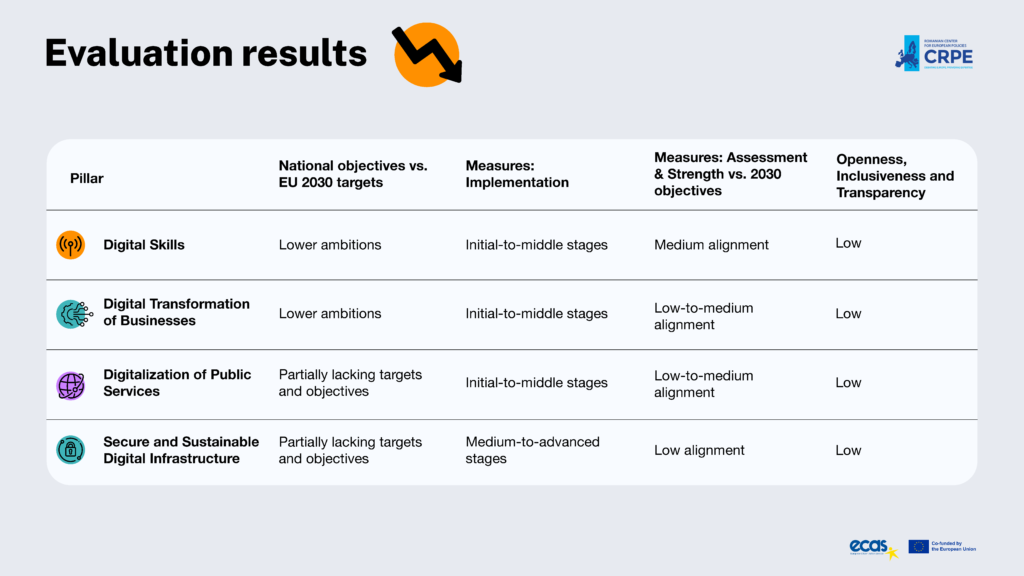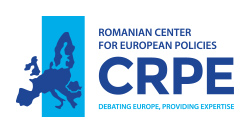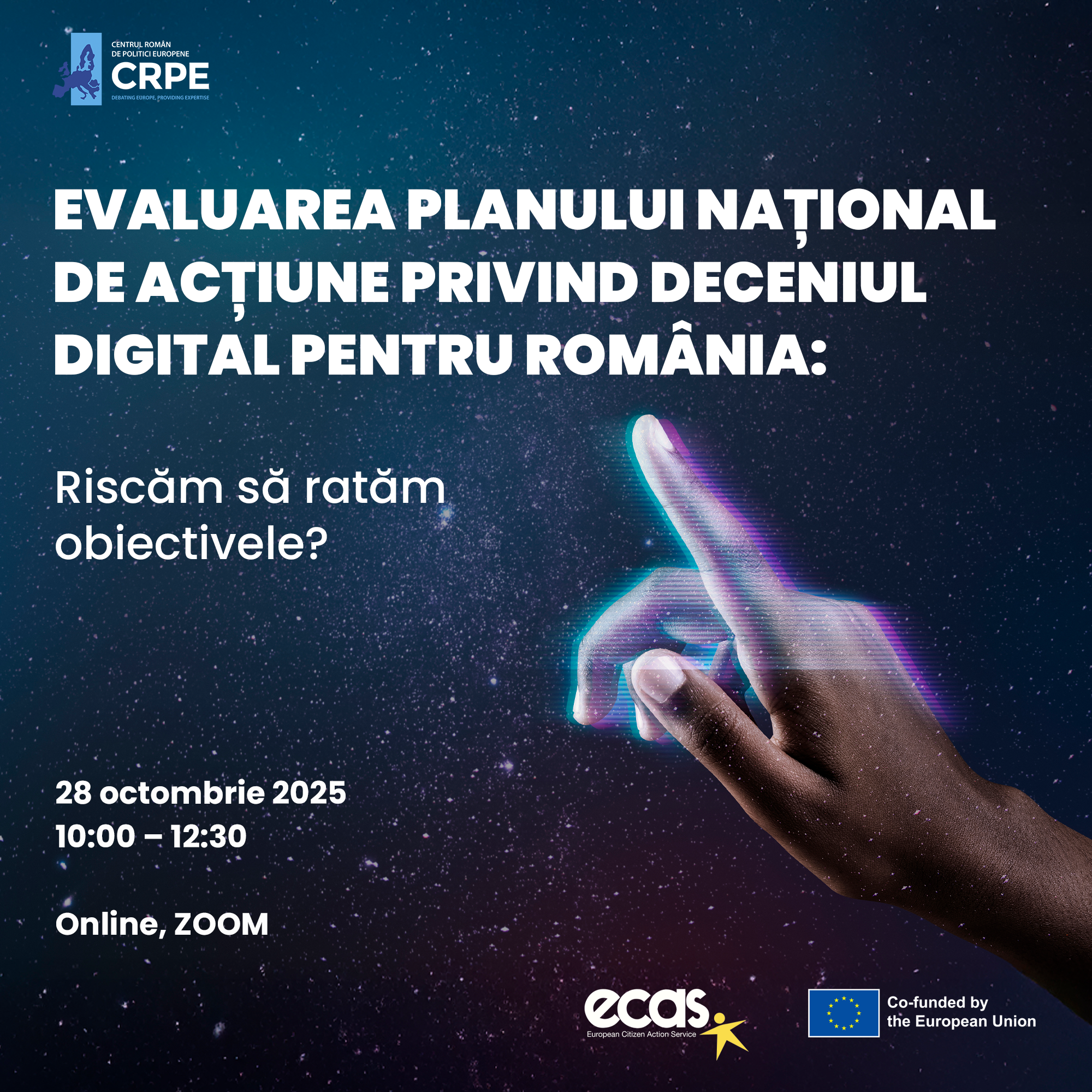On October 28, 2025, CRPE hosted an online debate focused on Romania’s progress toward the EU’s Digital Decade 2030 objectives. The event brought together more decision-makers, experts, civil society, academics, and industry representatives to discuss Romania’s digital ambitions, the gaps identified in national planning, and the urgent need to clarify the country’s direction in digital policy. With Romania lagging behind EU averages on digital skills, digital public services, and advanced technologies, the discussion centered on one essential question: Where does Romania want to be by 2030, and how do we get there?
CRPE launches the first independent analysis of Romania’s Digital Decade 2030 roadmap
During the event, CRPE presented its new report, Romania’s Digital Decade 2030 Roadmap: Building coherence, collaboration, and accountability. This is the first independent evaluation of Romania’s national plan submitted to the European Commission. The report highlights several structural problems: low targets compared to EU objectives, inconsistent or unrealistic indicators, fragmented actions repackaged from existing EU-funded projects, and persistent implementation delays. CRPE also introduces a structured database enabling annual monitoring of Romania’s progress, increasing transparency and accountability around digital transformation commitments.

A national plan with low Ambition and fragmented priorities
Participants discussed major weaknesses of the current Digital Decade National Action Plan. Instead of offering a coherent strategic vision, the plan relies heavily on isolated projects, many initially designed for other purposes. In several areas — from AI deployment to cloud infrastructure or big data — Romania has not set any measurable targets. The lack of relevant national data, limited political ownership, and institutional reluctance to adopt new technologies further deepen the gap with other EU member states. Despite these shortcomings, speakers emphasized that Romania still has significant potential driven by local initiatives, private-sector innovation, and EU funding — if these resources are strategically aligned.
Expert panel: Romania’s digital future between opportunities and delays
With more than 90 participants and speakers, the event featured an extensive conversation with representatives from the key institutions in charge of implementing and monitoring the Digital Decade roadmap, local public authorities, CSOs, businesses or the academia. The even explored how Romania can accelerate digitalization, what reforms are most urgent, and how institutions can work together with civil society and the private sector.
This event was organized within the EURECA 2025 project, funded by the European Citizen Action Service (ECAS) and co-funded by the European Union. The views expressed during the event and in the published report belong solely to the authors and do not necessarily reflect the opinions of the European Union or ECAS.



